
When in Amsterdam last week we managed to interrupt the fine folks at 3D Hubs, where their global headquarters is located.
In fact, the company is actually embedded within the Rockstart Accelerator, home to many interesting startups in Amsterdam. While many of the companies in the accelerator are small, 3D Hubs occupies an entire floor just for themselves.
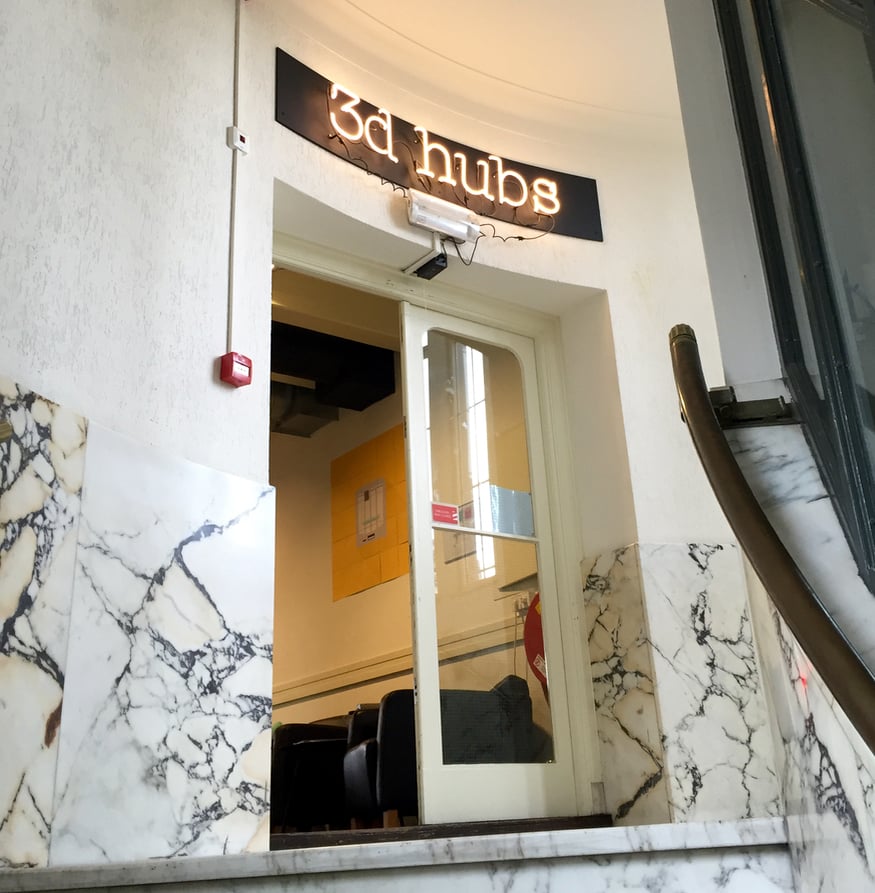
They’re located at the top of the stairs and are definitely not hard to find.
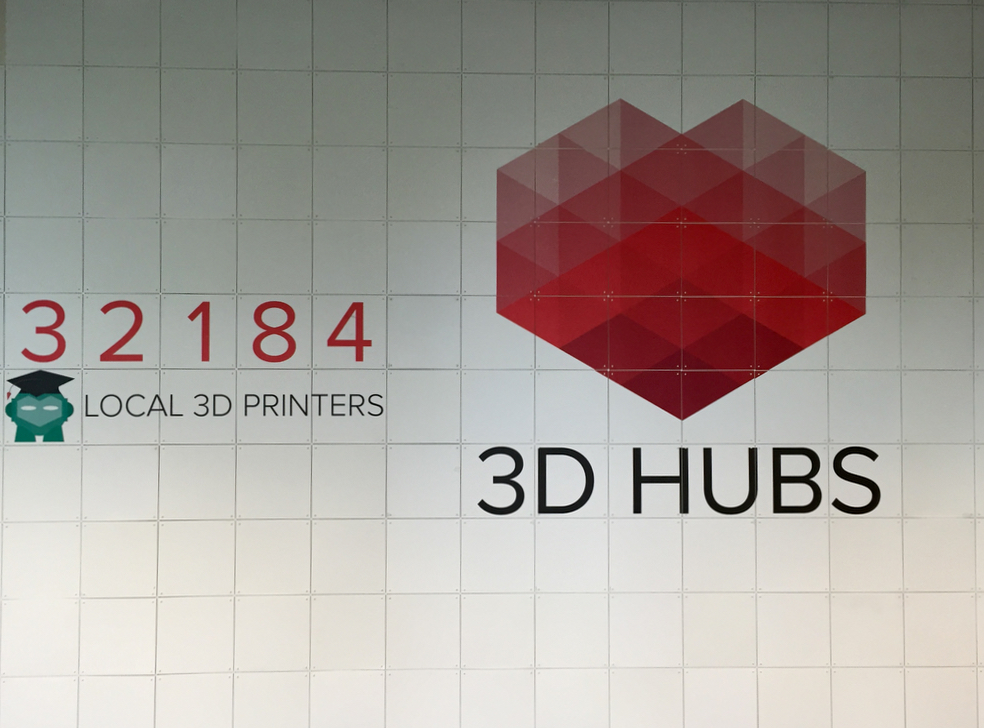
One immediate observation was the very prominent scorecard presented in their boardroom, which tracks the number of participants in their now-vast community network of 3D printers. They’re now well past 30,000 units and are certainly the largest such network in existence today. No, this isn’t dynamically updated; it’s a manual card-based wall.
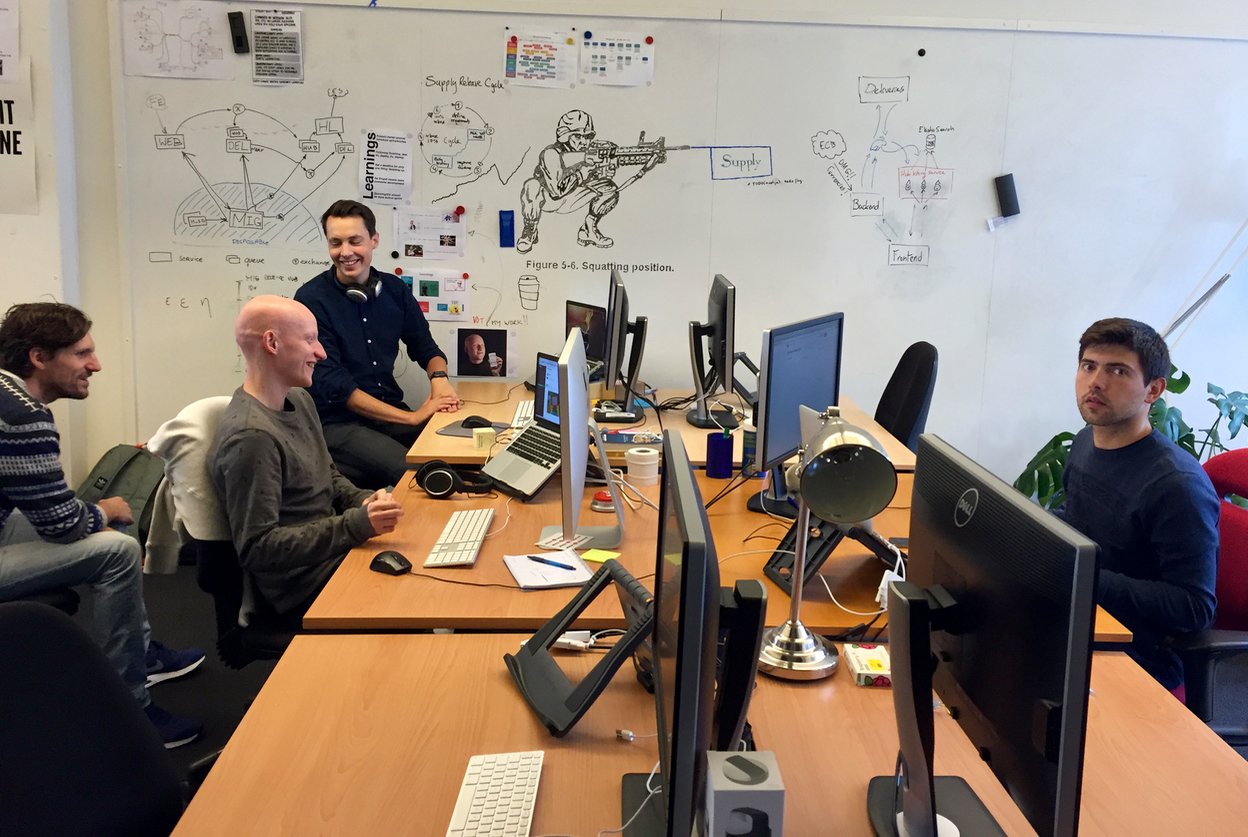
Also in the facility are the staff, which are broken into development, 24 hour support and executive. Here we see some developers, which have recently been subdivided into “Supply” and “Demand” teams to handle the two halves of their operations: one services those with 3D printers for hire, while the other develops for buyers of 3D prints.
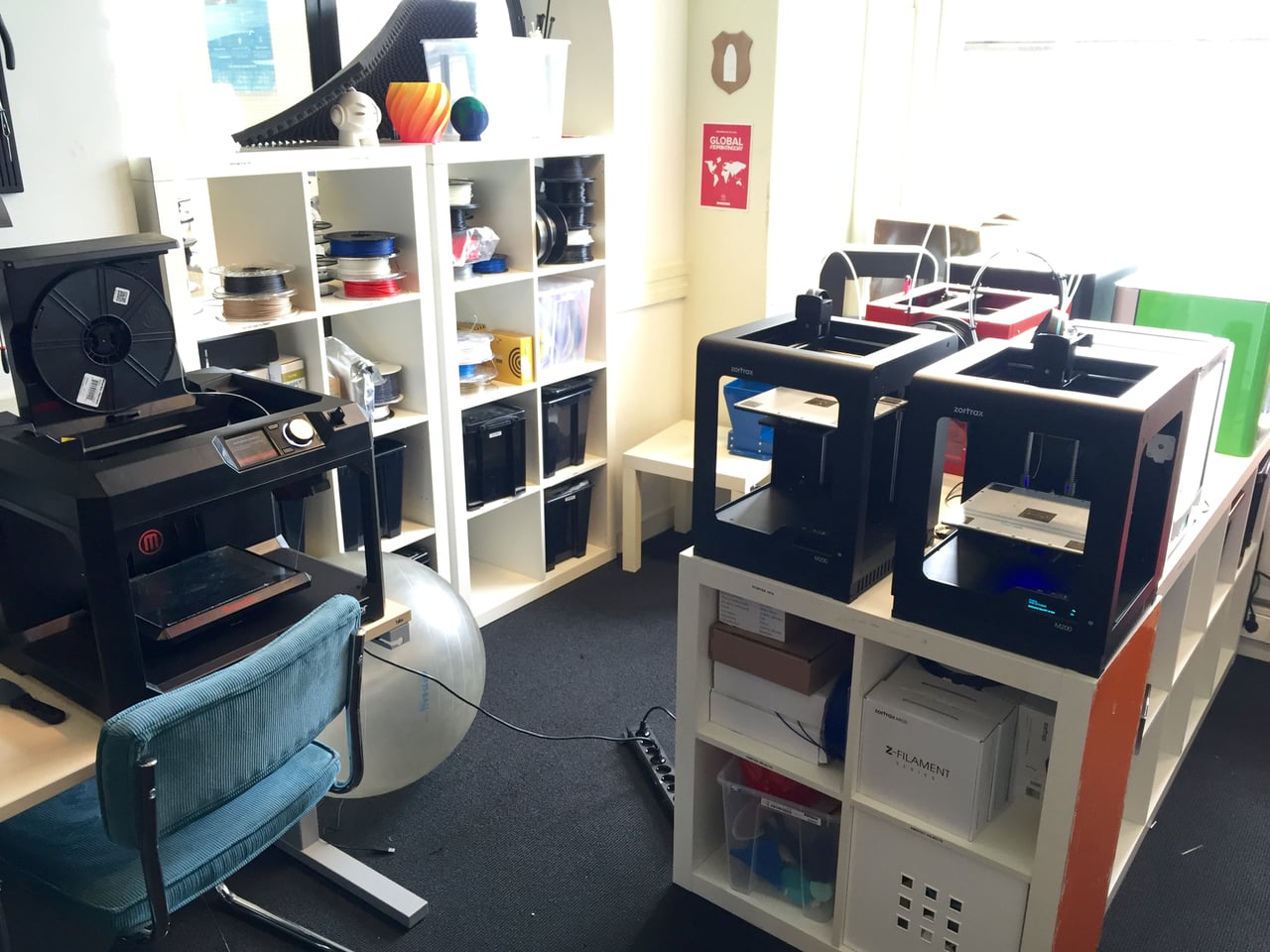
To aid the capabilities of the support unit, 3D Hubs has a small lab in which they have many of the most commonly participating 3D printers available for testing. From these they can identify common problems and solutions they can refer to when addressing incoming support calls.
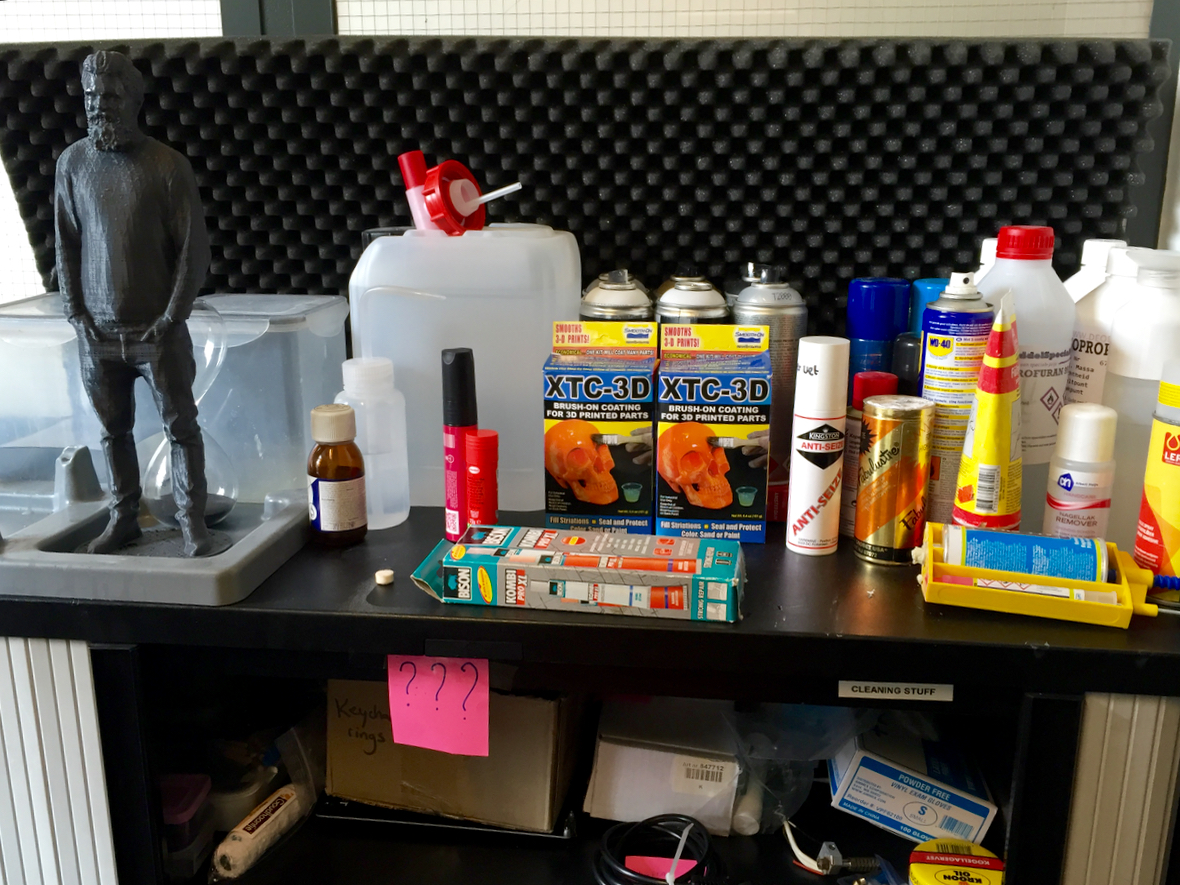
And it’s not just the printing: here we see a selection of various approaches to finishing prints that are also investigated by 3D Hubs. Finishing is an often-forgotten process, but quite often it is required and 3D Hubs’ support staff will know how to use many approaches.
Currently 3D Hubs is comprised of 35 staff, with two located in New York City for coordination of international activities. And yes, they are hiring. Evidently they require front- and back-end developers, specifically those with experience handling 3D files and an ability to interpret GCODE.
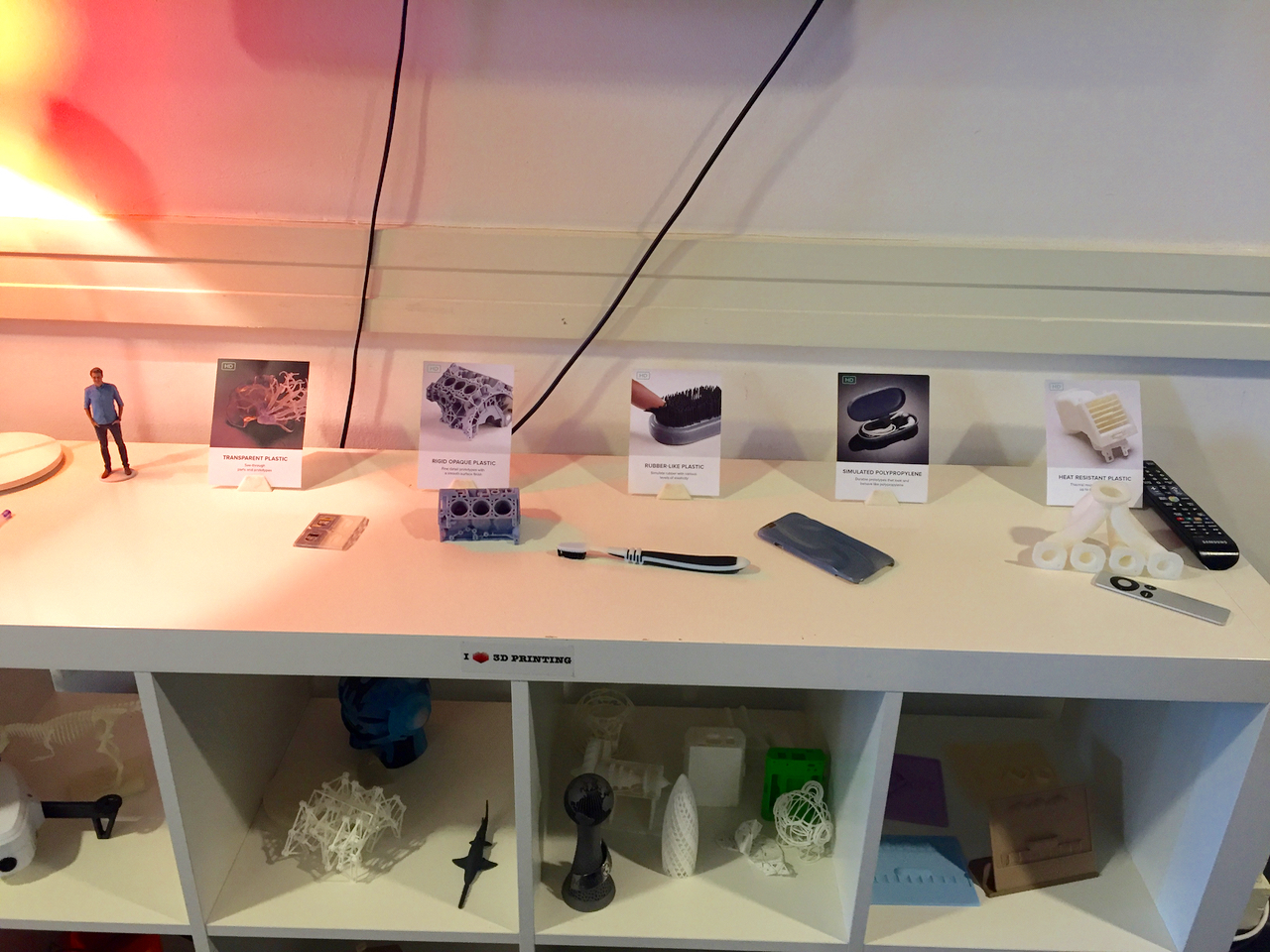
They’re still growing, as you may have noticed from their participant count, but they also grow in other ways. Their API that provides access to their network is publicly available, so they sometimes discover that someone has integrated with it unbeknownst to them. Such was the case recently when they found that MakePrintable, a company we’ve written about, has plugged into 3D Hubs. These integrations only make 3D Hubs’ ecosystem even larger and I suppose that was the goal of their API.
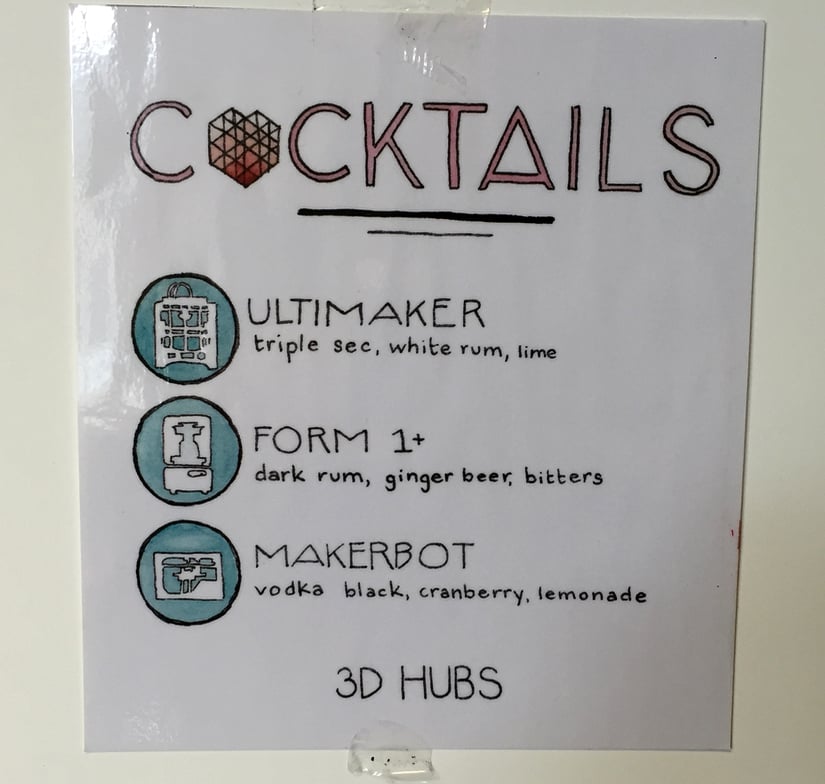
One issue they’ve had to overcome is the relative lack of business organization of some of their participants, who often need help setting up their accounting for taxes, invoices, marketing and more. To address this, 3D Hubs has created “Hub University” with videos to help out those who don’t know how to proceed.
Another issue they’re working with recently is the concept of “NDAs” or non-disclosure agreements. These are contracts between the buyer and the print operation to maintain secrecy of the print. This is critically important in some cases because the 3D files are sent to an unknown party for printing. Currently you can attach an NDA to a print request, but they’re hoping to develop something more smooth for their users.
Another very interesting challenge facing the company is as a result of their gradual transition from a network of hobbyists to a network of professional 3D printers. While they started very successfully with low-end hobby 3D printers in their network, it turns out there’s a lot more money to be made using industrial equipment. On the journey to add the professional side, they must somehow maintain two different types of users in their community. Each has very different needs and expectations.
I don’t know how they can solve that issue, but they’re definitely on it.
Via 3D Hubs

